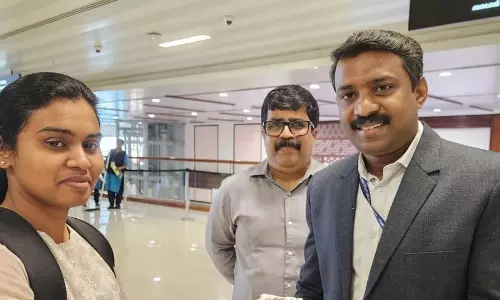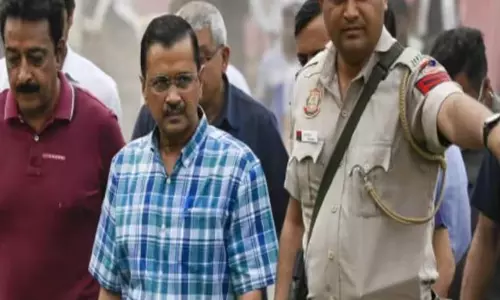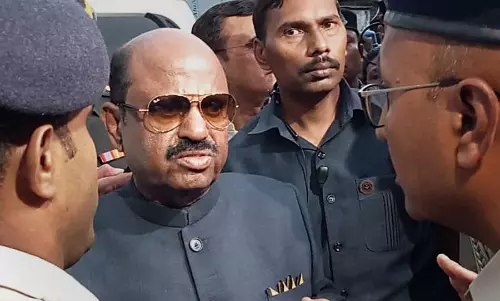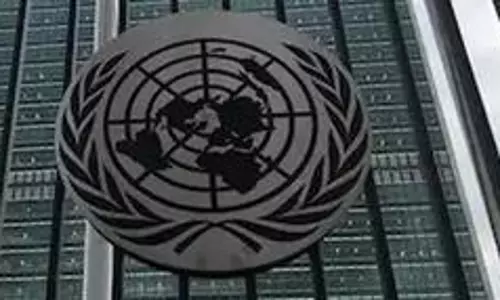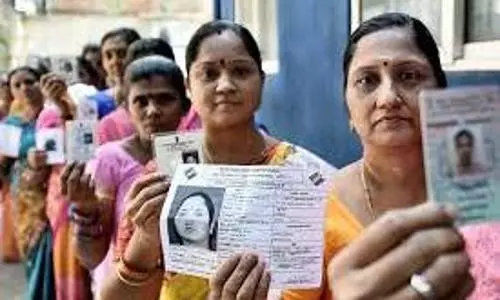
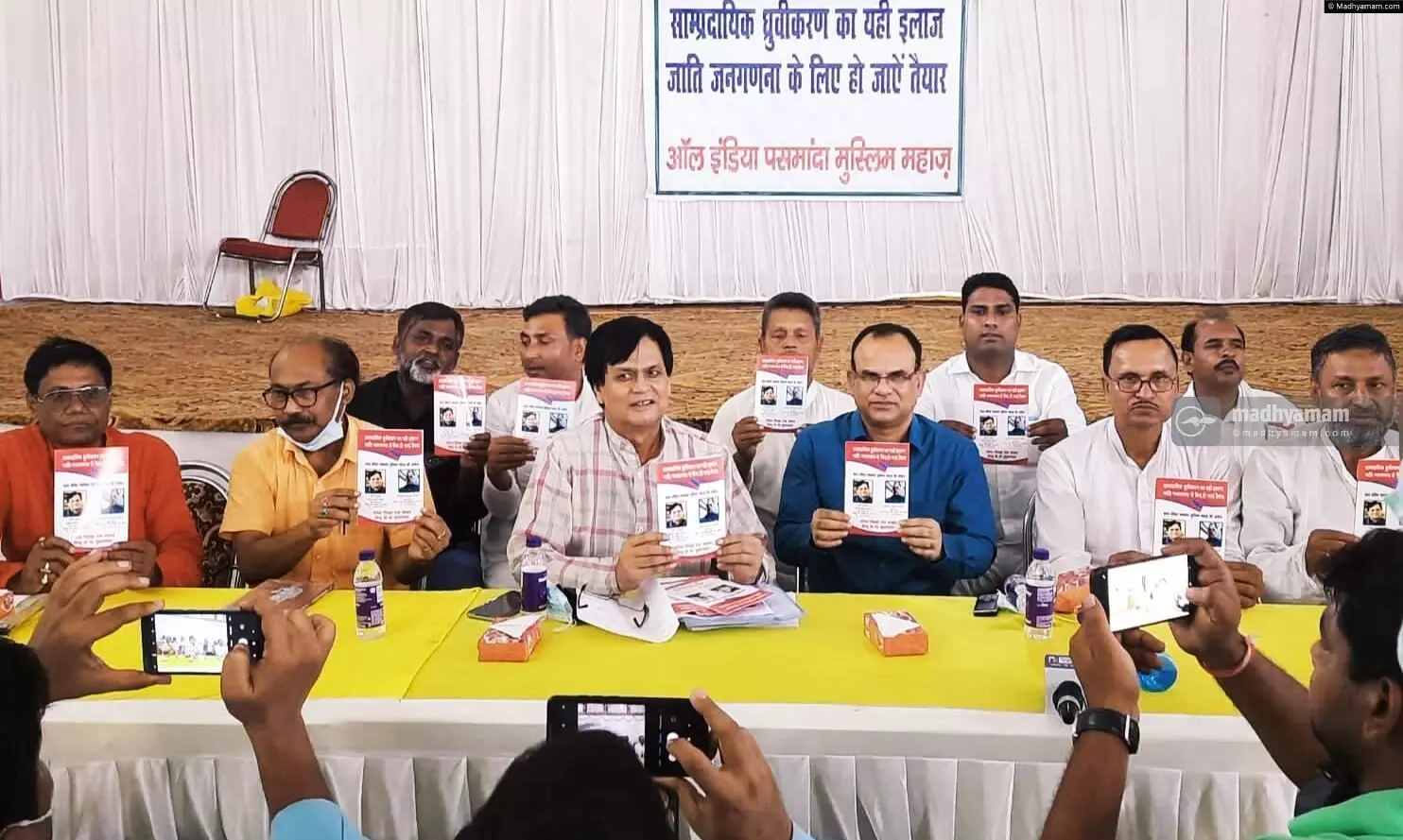
Why should we support caste census?
text_fieldsSocial and political organizations belonging to lower castes have been agitating for a complete caste census. Not surprisingly, the mainstream media – which is monopolized by a few upper castes – continue to pay little attention to the issue. But when it covers the news, it largely creates confusion, spreads half-truths and targets OBC leaders for being "politically motivated".
Writing an opinion piece in a leading Hindi daily, a UP-based upper-caste social scientist recently expressed the fear that the caste census might be misused as a "political weapon" and it might prepare the ground for numerically big castes to dominate the smaller castes. Another upper-caste columnist has similarly expressed concern that counting caste may strengthen the "vote-bank" politics.
That shows how the upper caste journalists are applying double-standard in the caste census issue. The numerically small upper caste groups continue to own the major share of land and properties, while the majority of people -- comprising Adivasi, Dalits, OBCs, women and the backward among the religious minorities -- are still landless labourers and urban proletariat. True, a small section of the non-Brahmins is rich and educated. A small section of non-Brahmin elites has made it to assemblies and Parliament. Having recognized all these facts, the reality is that the upper castes are still controlling everything.
In the domain of culture and religion, the upper castes remain unchallenged. They continue to run and control the cultural and religious institutions. They define taste and aesthetics. From cinema to university, from the top bureaucracy to industry, from Parliament to religious institutions, the upper castes rule the roost.
The mainstream media run and controlled by the upper castes have very little interest in questioning these structural inequalities. Nor has the mainstream press shown any guts to criticize the Hindutva forces for mobilizing a much bigger "Hindu" vote bank in opposition in opposition to Muslims and all "anti-nationals". From media to the mainstream political parties, the dominant voices oppose caste census. For example, the upper-caste leaders, who control the Hindutva outfits as well, are dead against the caste census. Why do they feel so?
Reasons for fear of caste census
The upper caste leaders belonging to Hindutva forces "fear" that the caste census might speed up the process of democratization of resources and power. Since political parties have to face elections and seek votes, the electoral compulsion of the country requires these Hindutva leaders to project themselves as the "well-wishers" of the marginalized sections. That is why saffron leaders have spoken in a forked tongue.
However, the RSS has no such compulsion as it does not contest elections and there is hardly any intra-party democracy. The RSS has not shied away from opposing the caste census. On August 2, 2015, Organiser, the mouthpiece of RSS, published an article that called the caste census "divisive" and peddled the rumour that it would "accentuate" caste division among Hindus.
Another article in Organiser (on 13 August 2015) called the process of recording caste in the census as being opposed to "secular" and "democratic" values. The article went on to ask, "India has been declared a secular and democratic country without distinction between caste and creed. Why has the bogey of caste been raised?"
As a matter of fact, the upper journalists and scholars from the newsroom to the headquarters in Nagpur are spreading misinformation and scaring people about the caste census. The census does not breed casteism as alleged. As opposed to the Hindutva myths and rumours, caste census is the need of the hour. It will help the policy-makers know the number of castes and learn about the extent to which the lower castes have access to the resources of the nation and governance of the country. Let me tell you at least five strengths of doing a complete caste census.
The case for caste census - and specious arguments against it
First, the caste census will reveal the precise population of lower castes and their social, educational and economic conditions. In an interview, eminent scholar Amitabh Kundu, who chaired the Post Sachar Evaluation Committee, underscored the need to go for a caste-based census: "The disaggregation of the population by caste and religious group is extremely important for the successful implementation of many of the government's programmes" (Forward Press, December 27, 2015).
See the paradox here. The upper caste journalists and politicians are often hesitant to acknowledge the backwardness of backward castes. For them, it is an exaggerated talk to divide Hindus. On several occasions, the upper caste lobbies have opposed the demand for removing the 50 per cent limit on the reservation with an argument that such a claim by lower castes for more reservation is not backed up by authentic data about castes. But when the demands for ascertaining authentic information about the population of lower castes and their social, educational and economic conditions are being made, they are opposing such a move. While the upper caste lobbies are giving a weak argument that caste census will breed casteism and divide Hindus, they do not want to touch the question that the caste-based discrimination and privileges predate the process of caste census in India.
Second, caste census is not against secularism. In simple words, a caste census is an act of adding a column and asking OBCs and upper castes to mention their caste and related information. The data collected will greatly help policymakers formulate policies accordingly.
We should not forget that a quarter of India's population comprising SCs and STs are asked to mention their caste and Adivasi identity in the census column. We should not also forget that every person has to give information about her religious identity in the census. If counting who are SCs and STs and seeking information about one's religious identity is compatible with secularism, how could caste census of upper castes and OBCs alone violate secularism?
Third, caste census data will solve several complex problems. Several dominant castes such as Marathas (Maharashtra), Kapus (South India) Gujjars (Rajasthan) and Jats (Haryana) have been demanding their inclusion in the OBC group. The increasing demands for inclusion to the OBC category were done without increasing 27 per cent reservation. For example, some state governments added new castes to the OBC category, but the judiciary later raised questions over these policies. "The authentic information about caste would answer several critical questions regarding", said Kiran Kumar, student leader belonging to All India OBC Students Association (AIOBCSA), University of Hyderabad. The interview with Kiran was conducted on August 10 in New Delhi when activists of AIOBCSA came from all across to country to hold a protest in the national capital for a complete caste census.
Fourth, the hardening of the caste identity and perpetuation of caste-based discrimination is not linked to caste census. True, the process of caste census and enumeration indeed creates and hardens identities. But blaming caste census for casteism is also an untenable argument. In his book 'Caste, Society and Politics in India from the Eighteenth Century to the Modern Age' (1999), noted historian Susan Bayly gives textual evidence predating the beginning of the process of caste census. The author says that caste has been a "real" and "active part" of India for centuries. Thousands of years before the coming of the British and the caste census, the caste ideals were written in Rig Veda. The Gita, Manusmriti also propagated the principles of caste as a universal law of life.
Fifth, caste data will help the oppressed castes and community get their rights. Holding a meeting in Patna on Tuesday, Pasmanda leaders of Bihar linked the caste census to development projects. Senior journalist, writer and former Member of Parliament Ali Anwar released a booklet on the occasion that demolishing several myths of upper caste media.
The booklet says that the Hindutva forces are far ahead of anyone else in playing the caste card. For example, the Gujarat government a long time back got the caste of Narendra Modi included in the OBC list. While distributing tickets, caste factors are never missed by the Hindutva parties. Even during the campaign, caste card is played to woo voters by saffron outfits. For instance, the caste of Prime Minister Narendra Modi was used in the Bihar Assembly Elections for gaining the votes of backward castes. Speaking to journalists, Ali Anwar, the author of the widely cited book 'Masawat ki Jung' or the Quest for Equality, said that 85 per cent of the majority in the country are deprived of getting their rights. "Our rights have been taken back. 85 per of the people have been labelled as a minority, while the real minority owns all the resources. Our share in public sectors is not given while in public sectors we are not there".
It is heartening that the forces belonging to social justice ideology have become active in demanding caste census. It is a positive change that chief minister Nitish Kumar and leader of opposition Tejashwi Yadav came together to demand caste census from the Prime Minister.
Not only politicians but all the secular and democratic forces have to join hands in demanding caste census. Replacing anti-people and hate-based Hindutva ideology with the egalitarian ideal of social justice requires demands a lot of effort and struggle.
(Abhay Kumar is a Delhi-based independent journalist and writer. Besides, he teaches Political Science and Urdu. His broad areas of interest include Minority Rights and Social Justice. He can be contacted at debatingissues@gmail.com)




